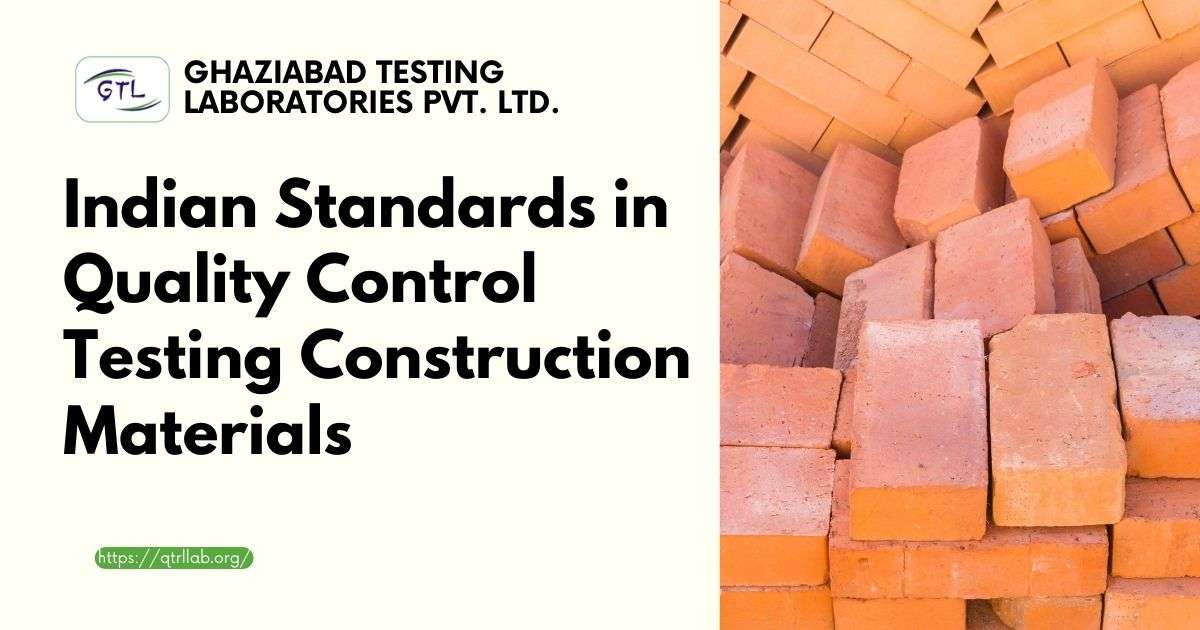The strength and safety of a building depend heavily on the quality of the materials used in its construction. In India, ensuring this quality is a collaborative effort between government bodies, manufacturers, and consumers. Let’s delve into the key aspects of building material quality control in India:
Indian Standards for Building Materials
The Bureau of Indian Standards (BIS) plays a critical role by establishing clear and comprehensive standards for a wide range of building materials. These standards act as a roadmap, outlining:
- Quality requirements: The desired level of performance for each material, ensuring it meets its intended purpose.
- Dimensions: Specifying the size and shape of materials to guarantee proper construction and compatibility.
- Properties: Defining the specific physical and chemical characteristics a material should possess.
- Limitations on use: Highlighting any restrictions on how a material can be used to prevent misuse and ensure safety.
Furthermore, the BIS issues Quality Control Orders (QCOs). These orders act as a legal mandate, specifying that certain building materials must conform to the relevant Indian Standards for that product category.
BIS Certification
Manufacturers play a vital role in maintaining quality. The BIS grants licenses to manufacturing units based on their ability to:
- Manufacture according to standards: This ensures factories have the necessary infrastructure and processes to consistently produce materials that meet BIS specifications.
- Conduct quality control testing: Manufacturers need to have the capacity to test their products in-house to verify compliance with standards.
Once a manufacturer meets these requirements, their products can be awarded the coveted ISI Mark. This mark signifies that the product has been rigorously tested and meets the relevant Indian Standards. Additionally, the BIS may issue a Certificate of Conformity (CoC) for products that undergo conformity assessment procedures. Both the ISI Mark and CoC serve as a mark of trust for consumers, assuring them of the safety, quality, and reliability of the building materials they purchase.
Testing for Strength and Safety: Quality Control Testing
Building materials undergo a series of rigorous tests before reaching construction sites. These tests assess various properties crucial for a building’s performance, such as:
- Strength: The ability of a material to withstand loads without breaking or deforming.
- Durability: How well a material resists wear and tear over time, ensuring the longevity of the building.
- Chemical composition: Verifying the absence of harmful substances that could compromise the health of occupants or the environment.
- Fire resistance: The capacity of a material to slow the spread of fire, enhancing building safety during emergencies.
Dedicated quality control laboratories equipped with specialized equipment conduct these tests. The results are then compared to the relevant Indian Standards to ensure compliance.
Ensuring Compliance: Implementation and Enforcement
Each QCO clearly specifies the date from which it becomes mandatory. After this date, manufacturers, importers, and sellers are legally bound to comply with the requirements.
To enforce these regulations, authorities can issue prohibition orders. These orders prevent the sale or distribution of building materials that do not bear the standard mark or do not conform to the specified Indian Standards.
The Importance of Quality Control
By adhering to established quality control measures, India ensures the construction of safe and sustainable buildings. This not only protects the lives of occupants but also contributes to the overall infrastructure development of the nation. So, the next time you see the ISI Mark on a building material, remember – it’s a symbol of a commitment to quality construction that lays the foundation for a strong and secure future.















